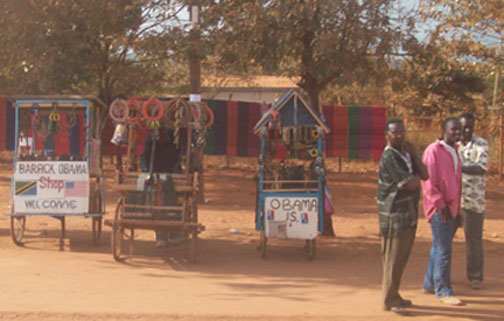That is the bracing message from Miami Archbishop John C. Favalora in a Sept. 12 column that is the best rendering I’ve yet seen of how the church–and the bishops–can approach the elections. The statement is titled “Why we don’t take sides on candidates,” and it is aimed at a conservative Christian group, the Alliance Defense Fund, which is promoting a “Pulpit Freedom Sunday” this weekend (CNS has a good story) to get clergy to buck IRS tex-exemption rules and opposing candidates who “do not align themselves and their positions with the scriptural truth.”
Favalora points out the obvious problem with wilfully forgoing tax-exempt status, but he also makes an argument that is particularly apropos ahead of next month’s Synod of Bishops on the Bible:
…”scriptural truth” is not that easy to attain. Which is more “true” in terms of scripture: The Old Testament passage that says “an eye for an eye, a tooth for a tooth” or Jesus’ admonition to “turn the other cheek”?
The problem is that people often quote selectively from Scripture in order to back their own opinions. The other problem is that rarely, if ever, does an individual candidate or political party embody the gamut of “scriptural truth.”
The Catholic Church values Scripture, but we also value 2,000 years of oral and written tradition handed down from the apostles and their disciples, and another 2,000 years of ongoing theological reflection by some of the greatest thinkers and saints.
When we teach on a particular moral issue, we rely on the whole of that tradition rather than on any individual’s opinion or interpretation of Scripture.
That is not to say that we are not involved in politics. Catholics do not give up their right to vote or take political sides when they are baptized.
But the role of the church is not to be like the “party boss” who goes around telling people how to vote. Our responsibility is to remind people to vote wisely; to reveal to them the wisdom of Scripture, the wisdom of the church’s moral tradition, so that they can base their votes on solid moral ground.
Too often, people vote based on their feelings, or on the partial sound-bites of candidates pushing a particular point of view. More often than not, decisions based on feelings or partial information turn out to be wrong.
That is why it is especially important for voters to study all sides of an issue — or candidate — and examine that information in light of their own beliefs and values.
When church leaders speak on issues such as immigration, poverty, health care, abortion, war or embryonic stem cell research, we are not telling people how to vote. We are reminding them of the moral teachings that should inform their lives, and as a result, their votes.
Actually, these are words Catholics themselves could read profit from (tax-free). Check the entire text…

